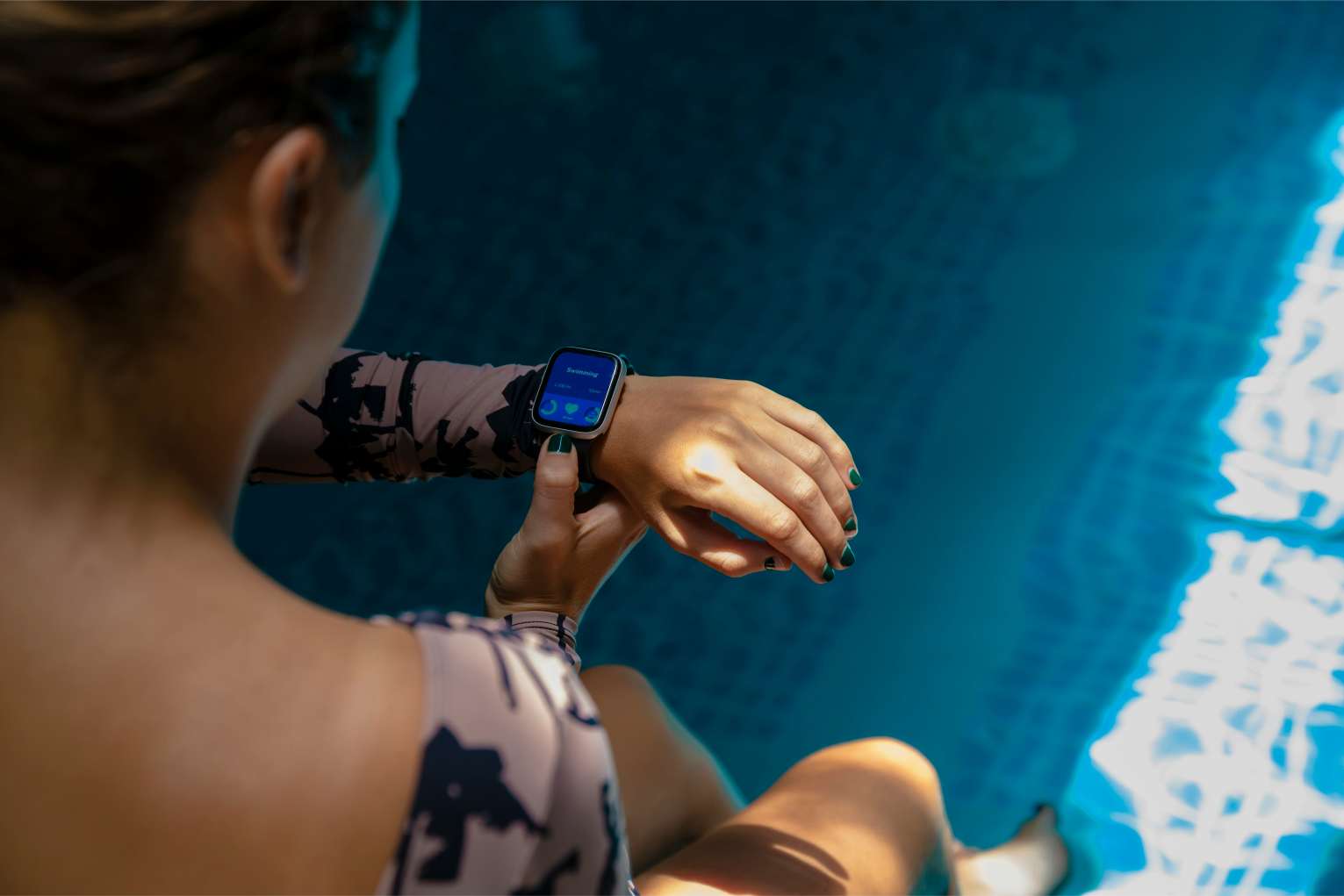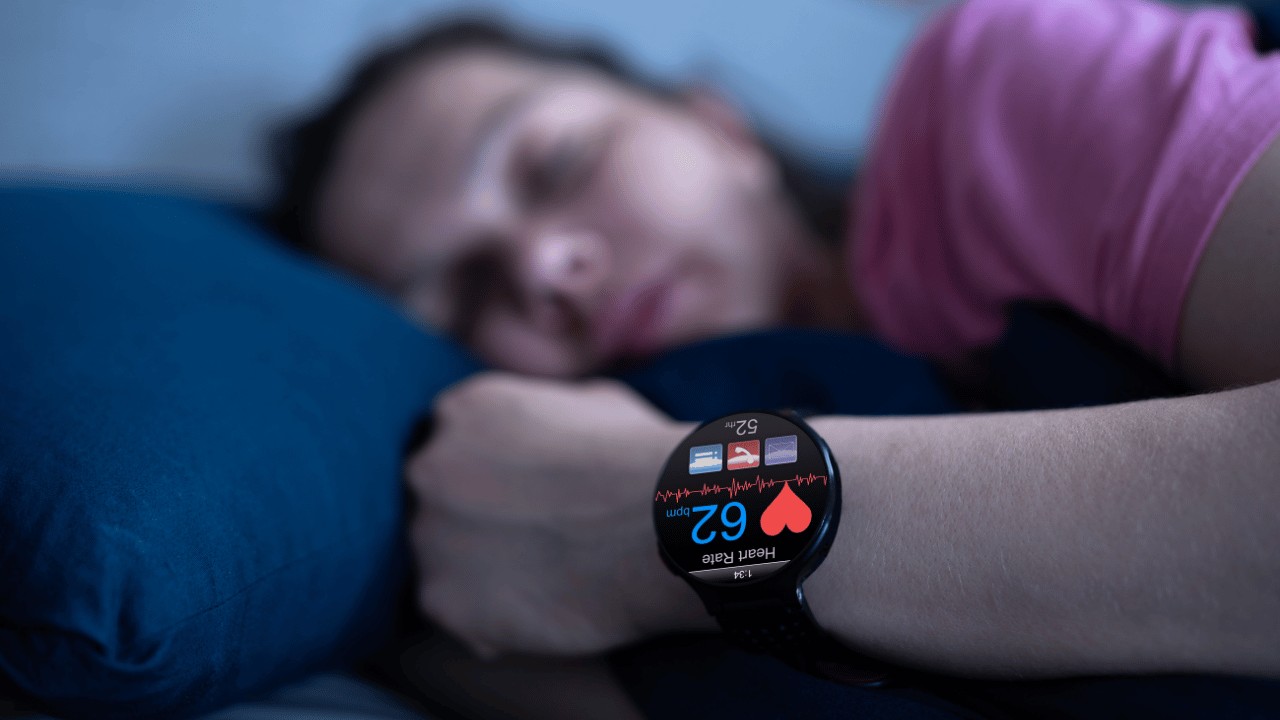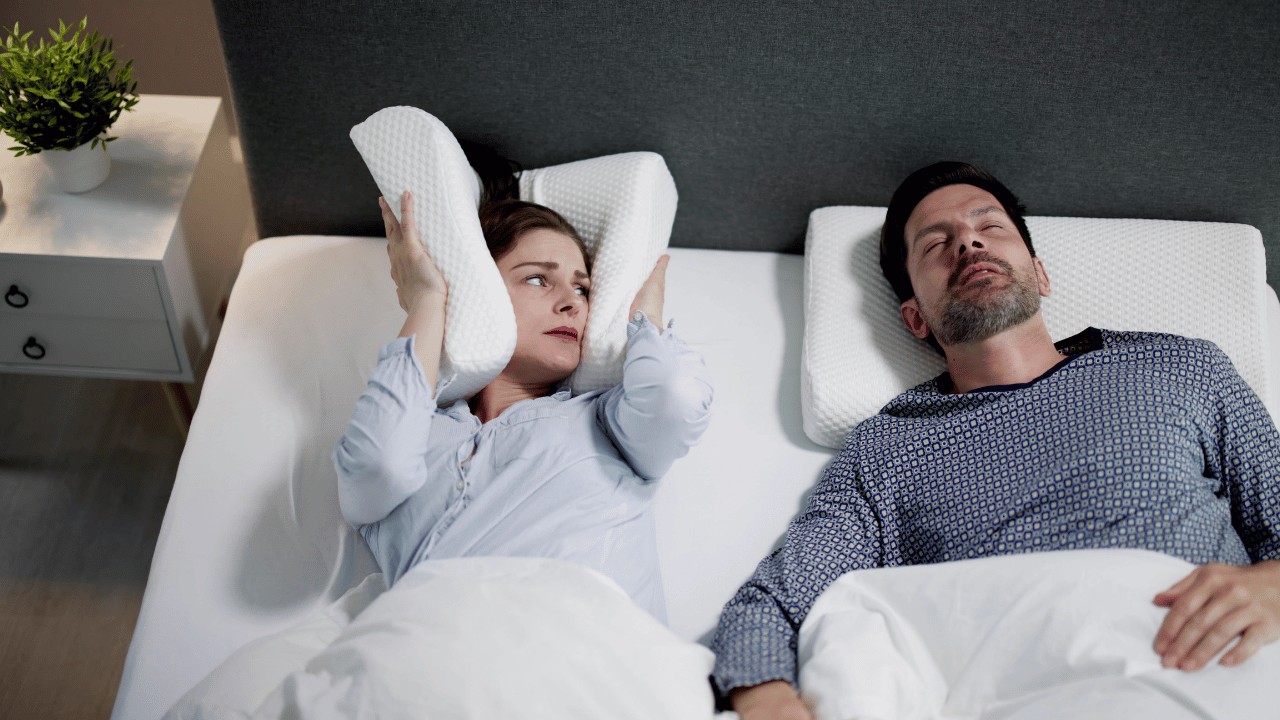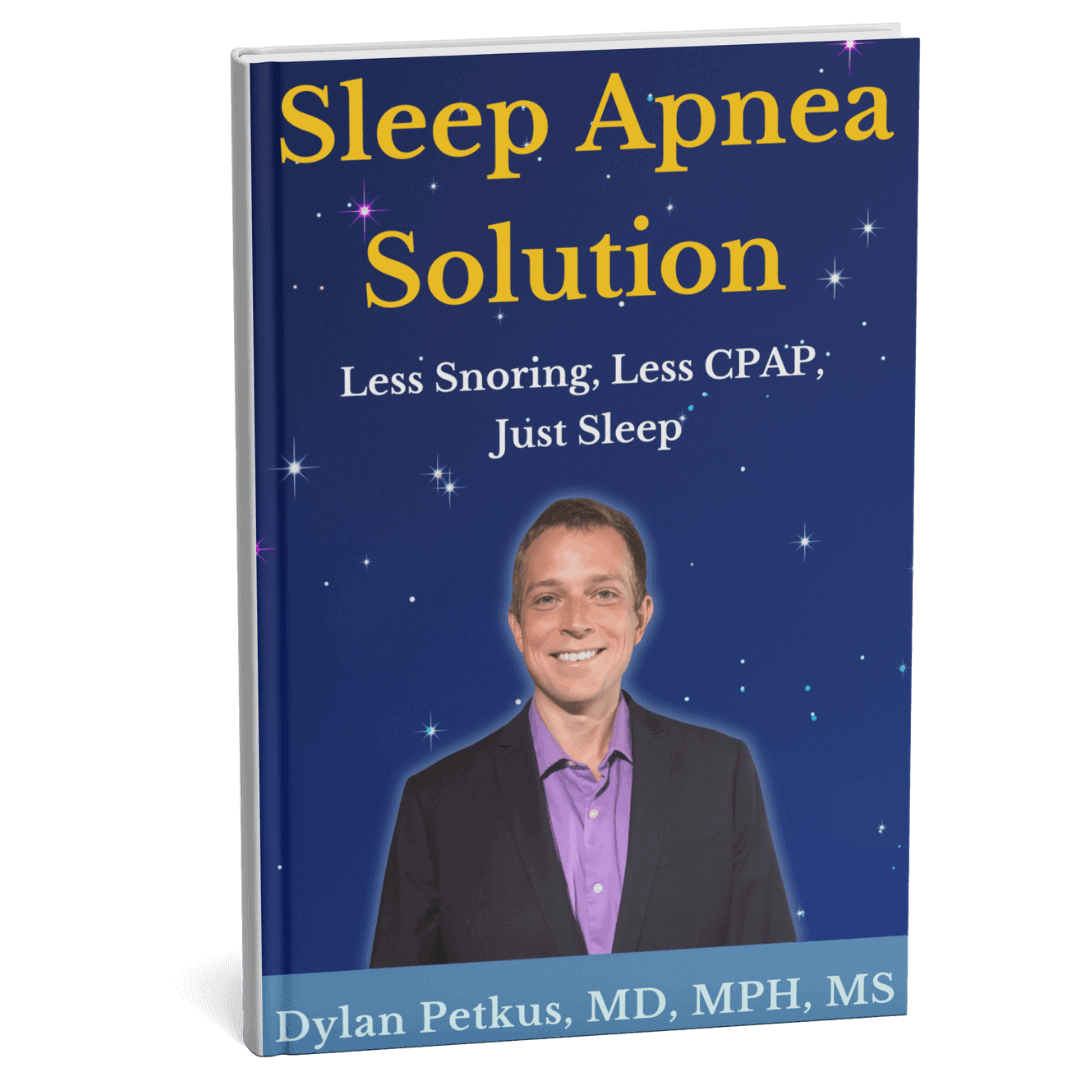
What if you could find out you had sleep apnea just by wearing a piece of technology? Turns out, this may be possible!
Studies have shown that heart monitors, especially portable devices like Holter monitors, can reveal some signs of obstructive sleep apnea (OSA). Other wearable health tech can track sleeping habits, too, but how?
By measuring something called heart rate variability, heart monitors can detect patterns that might indicate breathing problems while you sleep. This can make spotting sleep apnea much easier, especially when a traditional sleep study isn’t available.
If you’re weighing your options between wearing a heart monitor or want to compare the Oura Ring sleep tracker and the Fitbit sleep tracker, read on.
How Do Holter Monitors Work?
Can a Holter monitor detect sleep apnea? First, let’s look at how they work.
Holter monitors are small devices that record your heart’s activity over the span of twenty-four to forty-eight hours. They’re most commonly used to check for heart issues, but according to some studies, they can also be used to help detect sleep apnea.
When you have sleep apnea, your breathing stops and starts while you sleep, which impacts your heart rate. Holter monitors can note certain changes, like irregular heartbeats or shifts in your heart rate, which can help determine if sleep apnea is the culprit.

Monitors and Trackers Versus Sleep Studies
Heart monitors and sleep trackers can be very handy for keeping an eye on your sleep patterns, but when it comes to fully diagnosing sleep apnea, you may be better off going the old-fashioned sleep study route.
Monitors and trackers mostly rely on things like movement and heart rate to estimate your sleep stages. They can be a great way to see how well you’re sleeping or help you notice trends in your sleep habits, but they’ll never capture everything a sleep study can.
Diagnosing Sleep Apnea
If you’re picking up on a trend either on your heart monitor or your wearable health tech, it may be worth mentioning to your doctor. Only they can determine if you have the condition or not.
How will you get a diagnosis? Your doctor should work with you to evaluate your symptoms, which could look like:
- Extreme daytime fatigue
- Snoring
- Choking
- Gasping for air

All of these are possible signs of sleep apnea. To be fully diagnosed with the condition, you’ll likely need to undergo a sleep study, but in some cases, your doctor can prescribe an at-home test or heart monitor.
How do sleep studies work? You’ll stay overnight at a sleep clinic while doctors evaluate your health in several different ways, such as by measuring your brain waves and oxygen levels. This can help give them a clearer picture of what’s going on while you snooze.
If you go the sleep study route, how long does it take to get sleep apnea test results?
On average, it can take between a few days and a few weeks to hear back, depending on the type of test(s) you take.
Dealing with Sleep Apnea
Once you’ve received a diagnosis, what’s next? There’s no easy, one-size-fits-all treatment for sleep apnea. Some may be told to try a CPAP machine, while others may be recommended lifestyle changes like weight loss.
At Optimal Circadian Health, we believe in addressing the condition at its core. To us, that means focusing on breathing routines, sleep hygiene, and other lifestyle changes to find you some relief.
Our book, Sleep Apnea Solution, is full of educational resources to help you get started on that journey. In our book, you’ll find tools like:
- Breathing exercises
- Nutrition tips
- Circadian rhythm care
- Nervous system reset methods
It’s our goal to empower people to find what works best for them so they can sleep better, feel more energetic, and improve their health on the whole!



